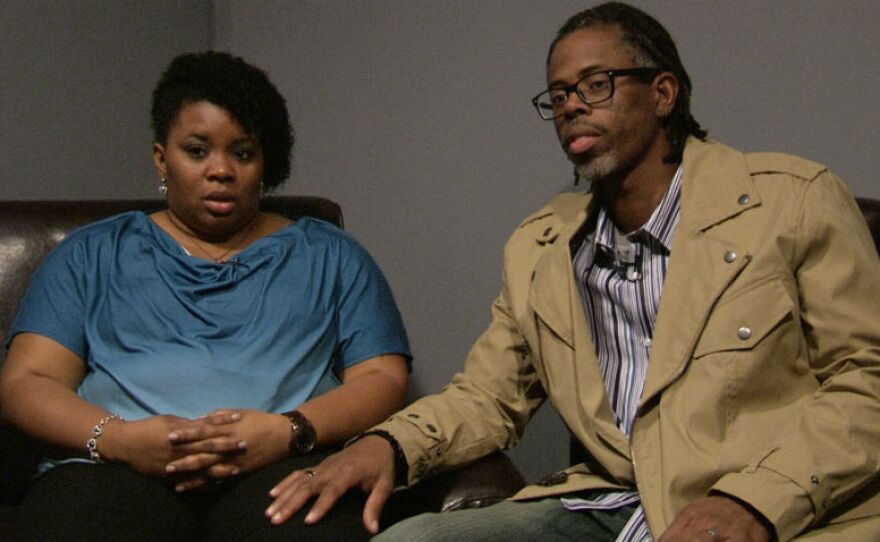Just because you have a decent job, house and car doesn’t mean you’re financially set. Just ask Schnique and JC Dory, a White Settlement couple raising two kids.
They both have steady jobs, their home is pristine and there’s food on the table each night. But they’re constantly beating back debt, and are among the one in three North Texans who can’t last more than 90 days after a financial emergency.
That’s the focus of our series One Crisis Away. The Dorys keep their family on track with financial planning and faith.
There’s no denying the energy of the 10 a.m. service at Trinity Harvest Church in Hurst.
On this particular Sunday, about 200 worshippers sing, sway and trade Amens. The church is modest. It’s a converted bingo hall in a small strip center. But there’s nothing subdued about the congregation.
“Without having the pastors that we have here, the ministry leaders that we have here, it’s no way to keep going,” Schnique Dory says. “You know, you get boggled down with work stuff, with the stresses and strains of life. This is just something to encourage you, to keep you going. Just to renew your faith in God.”
Schnique and her second husband, JC, worship at Trinity Harvest every Sunday, along with her two children, 13-year-old Jaelyn and 11-year-old Schnthia.
The Dorys look like many middle-class families. Schnique is a middle school English teacher and JC is a truck driver. They live in a neat, two-story home in the Fort Worth suburb of White Settlement. And they have a little money in savings.
But like many North Texans, they’re constantly fighting to stay ahead financially. Their big challenge? Coping with debt.
“We had to start using the credit card again because of a couple weeks I was off work. So now we’ve got the credit card debt back but we’re knocking it down slowly,” JC says. “So we got it knocked out within six months, and it took a couple of weeks for it to come right back.”
JC says their answer is to live frugally. They’re careful at the grocery store. They only eat out with a coupon and they don’t jump into home improvement projects they don’t need.
Schnique says they’re living so lean now that if something unexpected comes up, there’s no fat to cut.
“I think that would put our family in a very, very difficult position. And we would have to change our lifestyle a lot,” Schnique says. “I mean we’re frugal! So just with us being frugal and having to dial back what we would spend, it would be a crisis.”
Schnique knows what a crisis looks like. Ten years ago she was a single mom with no job prospects. She faced homelessness even though she had a bachelor’s degree in business.
“When I left their father, I was a stay-at-home mom, so although I had the degree I stayed at home, so when I left I left with nothing. Nor did he provide any support for us,” Schnique says. “So to get a job I would have to have the money to put my children in daycare. If you don’t have the money to put them in daycare, you can’t really go out to find a job.”
Schnique found temporary housing and got her teaching certification. When she married JC in 2012, things started to look up.
But the Dorys say their finances are far from perfect. JC says there’s a lot more he’d like to accomplish financially.
“Well I’d like to have retirement in my savings fund, that’s what I’m working for. You know when it’s time to retire to have the money to be able to retire,” JC says.
That means hard work -- and strong faith.
“You have to believe in something bigger than yourself. It seems like I could never get caught up until I started paying my tithes,” JC says. “It’s when I put it in faith’s hands, in God’s hands that the money started coming back to me anyway.”
That's something the Dorys try to always remember.
Learn more about the Dory family in this video:
http://youtu.be/E5xoX6NuowY







